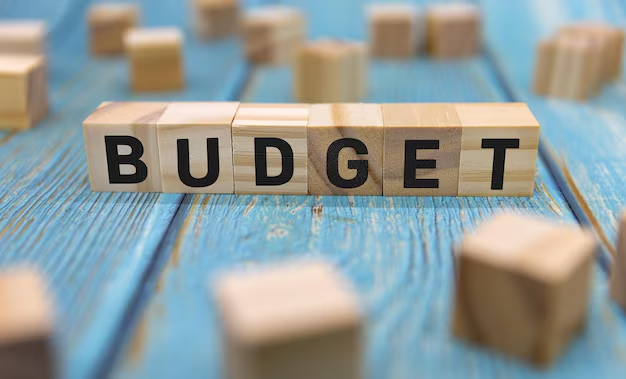**This article was generated with the assistance of AI. While efforts are made to provide accurate and helpful information, occasional errors or omissions may occur.
Breaking Free from the Paycheck-to-Paycheck Cycle: A Comprehensive Guide
Imagine a life where unexpected expenses don't send you into financial turmoil. Where you greet the end of the month with excitement instead of dread. This vision can become a reality by taking steps to stop living paycheck to paycheck. It's more than a fantasy; it's a journey towards financial freedom and peace of mind.
Understanding Your Financial Situation
Transforming your financial life starts with understanding where you currently stand. This involves a thorough examination of your income, expenses, debts, and savings.
Budgeting: The First Step to Clarity
Budgeting is the cornerstone of financial management. Many people avoid it because it feels like a meticulous process, but in reality, it's your financial blueprint.
- Track Your Expenses: Start by noting every expense for a month. This includes everything from groceries to that morning latte.
- Categorize Your Spending: Divide your expenses into categories like essentials (rent, utilities), non-essentials (entertainment, dining out), and savings.
- Compare with Your Income: Ensure your total expenses don't exceed your income. If they do, identify areas for reduction.
Setting Financial Goals
Having clear financial goals provides direction and motivation. These should be SMART: Specific, Measurable, Achievable, Relevant, and Time-bound.
- Short-term Goals: Save for a vacation, establish an emergency fund.
- Long-term Goals: Save for retirement, pay off student loans, or buy a home.
Creating a Sustainable Budget
Once you've tracked your expenses and set goals, creating a sustainable budget is crucial.
Prioritizing Needs Over Wants
Understanding the difference between needs and wants is essential for budgeting.
- Needs: Essential expenses like food, shelter, transportation, and healthcare.
- Wants: Non-essential items such as dining out, luxury clothing, or the latest gadgets.
Implementing the 50/30/20 Rule
The 50/30/20 budget rule is a straightforward way to allocate your income:
- 50% for necessities
- 30% for discretionary expenses
- 20% for savings and debt repayment
This structure ensures you're living within your means while saving for the future.
Building an Emergency Fund
An emergency fund prevents unplanned expenses from derailing your finances. Aim for three to six months' worth of living expenses saved. Start small, contributing a modest amount regularly until you reach your goal.
Escaping the Debt Cycle
Debt can be a significant barrier to financial freedom, but it's not insurmountable.
Methods to Tackle Debt
- Debt Snowball: Focus on repaying your smallest debt first while making minimum payments on others. This builds momentum and motivation.
- Debt Avalanche: Target debts with the highest interest rates initially, minimizing the total interest paid over time.
Refinancing and Consolidation
Refinancing and debt consolidation can lower interest rates or combine multiple debts into one, making management easier. Evaluate whether these options align with your financial goals.
Increasing Income: A Supplementary Strategy
While reducing expenses is essential, increasing your income can significantly improve your financial standing.
Side Hustles and Part-Time Work
Consider taking on a side hustle or part-time work. Popular options include freelancing, tutoring, or driving for a rideshare service.
Enhancing Career Prospects
Investing in education or skill development can lead to higher paying job opportunities. Consider:
- Continuing education
- Online courses or certifications
- Networking within your industry
Smart Saving and Investing
Accumulating savings and investing wisely grows your wealth, offering security and options for the future.
Exploring Different Saving Plans
Various saving plans can suit different goals. Consider high-yield savings accounts or certificates of deposit (CDs) for safe, interest-bearing options.
Introduction to Investing
Investing can seem daunting, but starting simple can demystify the process.
- Begin with Index Funds or ETFs: These offer a diversified portfolio at a lower risk than individual stocks.
- Explore Retirement Accounts: Contribute to an IRA or 401(k) to build retirement savings and benefit from potential employer matches.
Psychological and Behavioral Adjustments
Changing financial habits often requires a shift in mindset.
Building Disciplined Habits
Consistency and discipline are key to financial success. Set up automatic transfers to savings or investment accounts to make saving a hassle-free routine.
Avoiding Lifestyle Inflation
As income increases, it can be tempting to elevate your lifestyle. However, maintaining current spending levels and saving the extra can accelerate financial growth.
Practical Consumer Tips: Your Guide to Success
Here’s a quick reference guide to smart financial habits:
- 📊 Track Spending: Use apps to monitor and categorize expenses.
- 💰 Build an Emergency Fund: Even small monthly contributions add up.
- 🎯 Use Debt Strategies: Employ the snowball or avalanche method as suits you.
- 🧑🏫 Invest in Education: Enhance career prospects with new skills.
- 📈 Start Investing: Begin with safe options like index funds.
- 🔄 Automate Savings: Set automatic transfers to avoid missed contributions.
A New Financial Chapter
Breaking free from living paycheck to paycheck is a transformative journey. It's about mindful spending, strategic saving, and embracing opportunities for growth. It requires financial awareness and behavioral adjustments, but the resulting financial freedom is worth every effort. Empower yourself with knowledge and proactive steps, and watch as a more secure and fulfilling financial future unfolds.

Related Topics
- 50/30/20 Budget Rule
- Bank Account Switching Bonuses
- Beginner Personal Finance Guide
- Best Budgeting Apps
- Best Cash-back Websites
- Best Cashback Credit Cards For Groceries
- Best Checking Accounts
- Best Expense Tracker Apps
- Best High-yield Savings Accounts
- Best Money Management Tools
- Best Money-saving Tips
- Best Personal Finance Books
- Best Prepaid Debit Cards
- Best Savings Accounts
- Best Savings Apps
